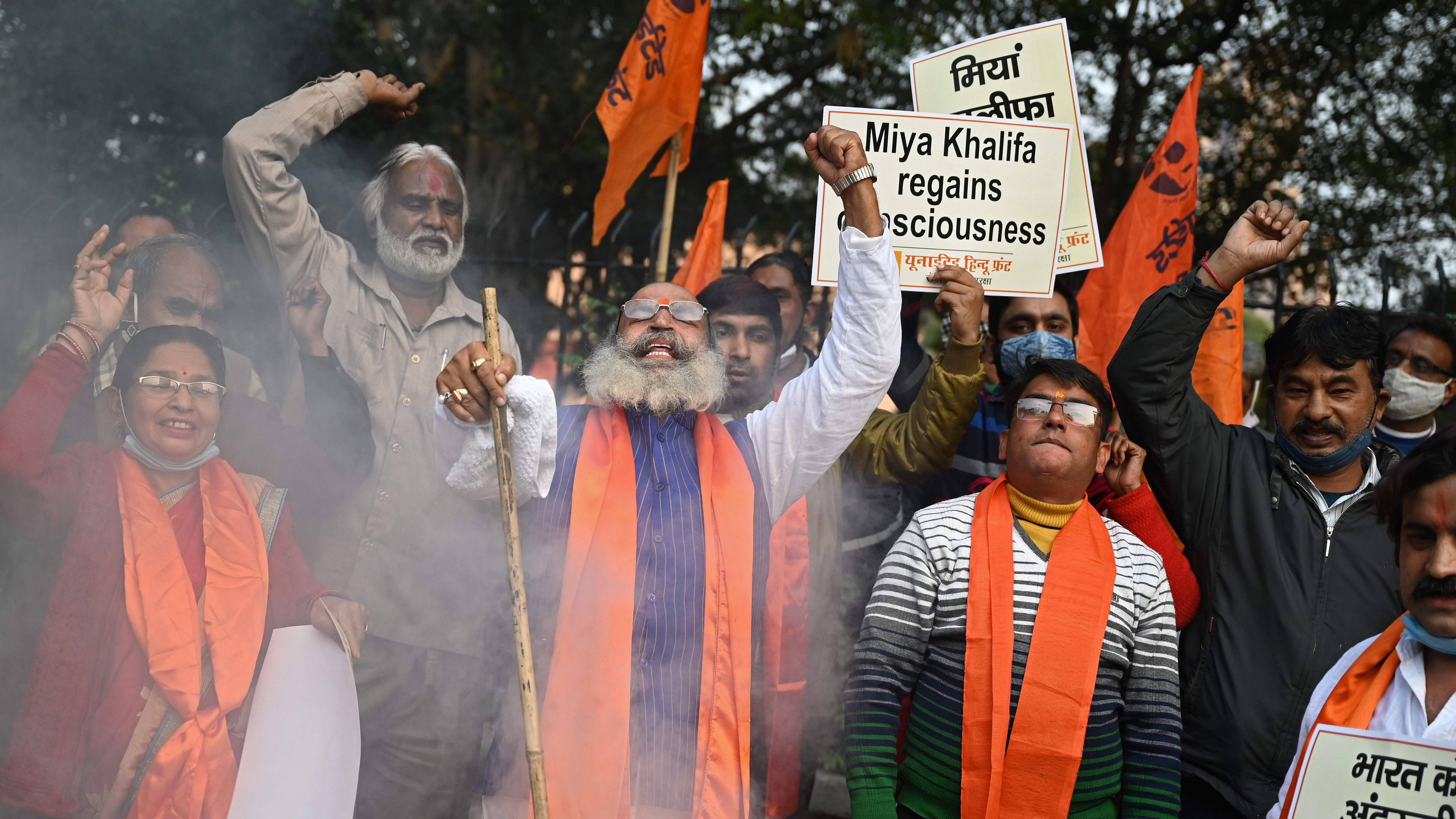
The ongoing protests by Indian farmers against a new set of agricultural laws have drawn tremendous international attention. Thanks to Barbadian singer-songwriter Rihanna and Swedish climate activist Greta Thunberg, the world sat up and took notice of the Indian government’s undemocratic move to shut down Internet access to protestors. Their massive fan base amplified the message.
Other celebrities have now joined in solidarity. Lebanese-American actor Mia Khalifa, English singer-songwriter Jay Sean, American footballer JuJu Smith-Schuster, Canadian comedian and talk show host Lilly Singh, American model Amanda Cerny, and American actor-producer Hasan Minhaj are part of a growing list of international figures pledging support for the farmers’ right to protest.
In his book Media, Sustainability and Everyday Life (2019), Geoffrey Craig writes about how celebrities are “complex vehicles that have communicative, cultural and economic and social functions.” In one of the chapters, titled “Celebrities and Environmental Activism,” he unravels how they become “a conduit of affective power” and “give expression to social values and styles and the way they identify with –- and often speak for – different public constituencies and audiences.”
Touchy, defensive response from Indian celebrities
The international boost to farmers’ protests has irked Indians who believe that foreign commentators should shut up and mind their own business. The argument they make is that the protests are an internal matter between Indian farmers and the Indian government, so outside parties need not interfere. Actors Akshay Kumar, Kangana Ranaut and Hema Malini, and cricketers Sachin Tendulkar and Virat Kohli, are among those who have pushed back against criticism of the Indian government.
Why are these Indian celebrities being touchy and defensive? What is their grouse against international celebrities using social media platforms to raise awareness about the farmers' protests and the subsequent crackdown by the Indian government? If India wants to be a big player and a force to reckon with in the global economy, Indians will have to get used to the attention that comes with it.
These Indian celebrities are parroting the stance taken by India’s Ministry of External Affairs in an official statement rebuking “sensational social media hashtags and comments.” The ministry urged international commentators to view these protests “in the context of India’s democratic ethos and polity, and the efforts of the government and the concerned farmer groups to resolve the impasse.”
Suspending Internet access to muzzle protestors is not the best way to publicise one’s democratic credentials. However, managing India’s image on the global stage is part of the ministry’s job, so the official statement is understandable. What is surprising is the backlash from Indian celebrities, their ardent desire to be cheerleaders for the government, and their shallow grasp of political issues.
When George Floyd, an African American man in Minneapolis, was killed in May 2020, several Indian celebrities including Priyanka Chopra Jonas, Kareena Kapoor Khan, Deepika Padukone, Karan Johar and Sonam Kapoor Ahuja spoke up against racism and police brutality in the United States. If Indians can talk about human rights violations in another country, why can’t international celebrities do the same?
A counterproductive move
In a journal article titled “One tweet to make so much noise: Connected celebrity activism in the case of Marlee Matlin” (2018), Elizabeth Ellcessor explains that “social movements are transitioning from ‘collective’ to ‘connective’ action, relying less upon established organizations and social groups and more upon loose networks of social connections to organize and act.” In such a scenario, celebrity social media accounts serve as nodes for the distribution of crucial information.
Thunberg, an 18-year-old, is known for speaking truth to power – even when people at the receiving end include high-profile political leaders such as Emmanuel Macron, Vladimir Putin, Donald Trump, Angela Merkel and Scott Morrison. Effigies of Thunberg were burnt in Delhi. By doing this, Indians are only conveying the impression that freedom of speech is not respected in our country, and women who think critically and speak fearlessly are threatened, shamed and abused.
People who are concerned about India’s international image might want to read Simon Mark’s paper “A Greater Role for Cultural Diplomacy” (2009). He outlines how “the deployment of a state’s culture in support of its foreign policy goals” can contribute to “national image, branding and social cohesion” and also “overcome audience suspicion of official messages and serve to provide substance to national reputation.” Trolling international celebrities does not help accomplish these goals.
Indians who assume that celebrities articulate their thoughts on political issues only when they are paid to do so might find it beneficial to review that perception. Some might be up for hire but not everyone needs to be painted with the same brush. There are enough people in the world with voice and clout who want to use these in service of the values that they cherish.
(Chintan Girish Modi is a writer, educator and researcher who tweets @chintan_connect)
Disclaimer: The views expressed above are the author’s own. They do not necessarily reflect the views of DH.